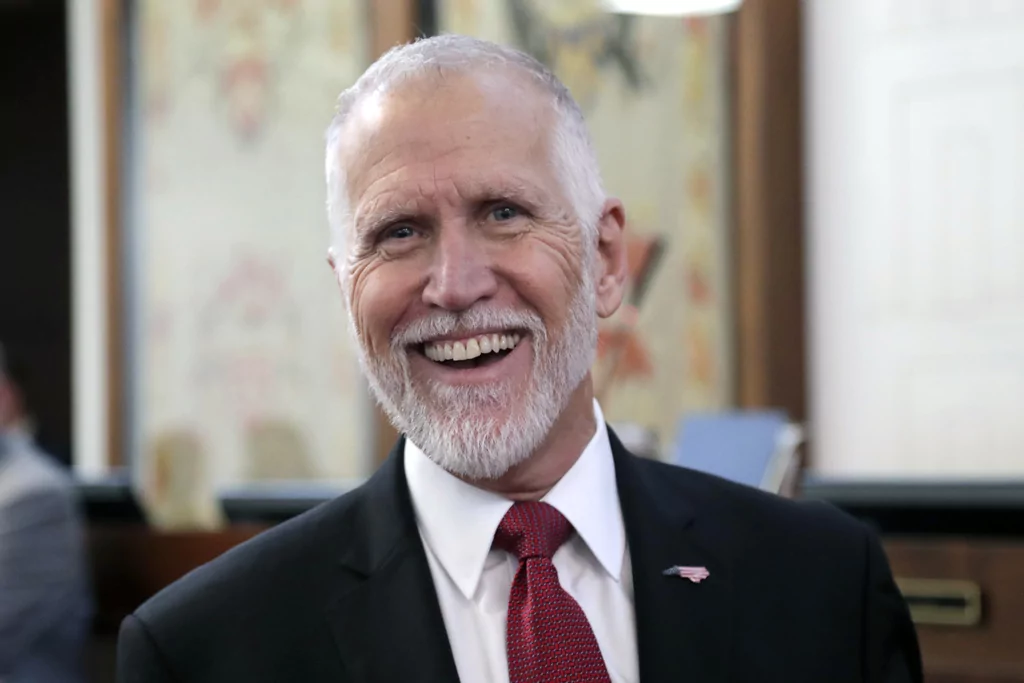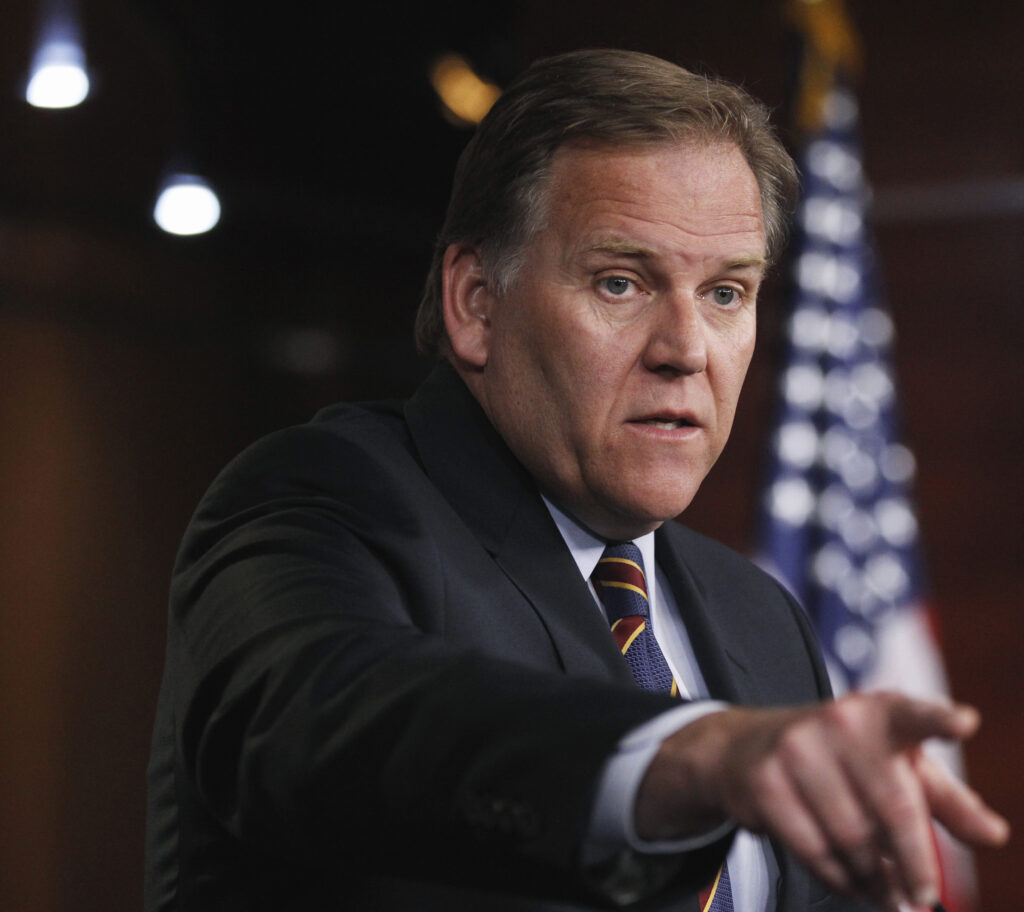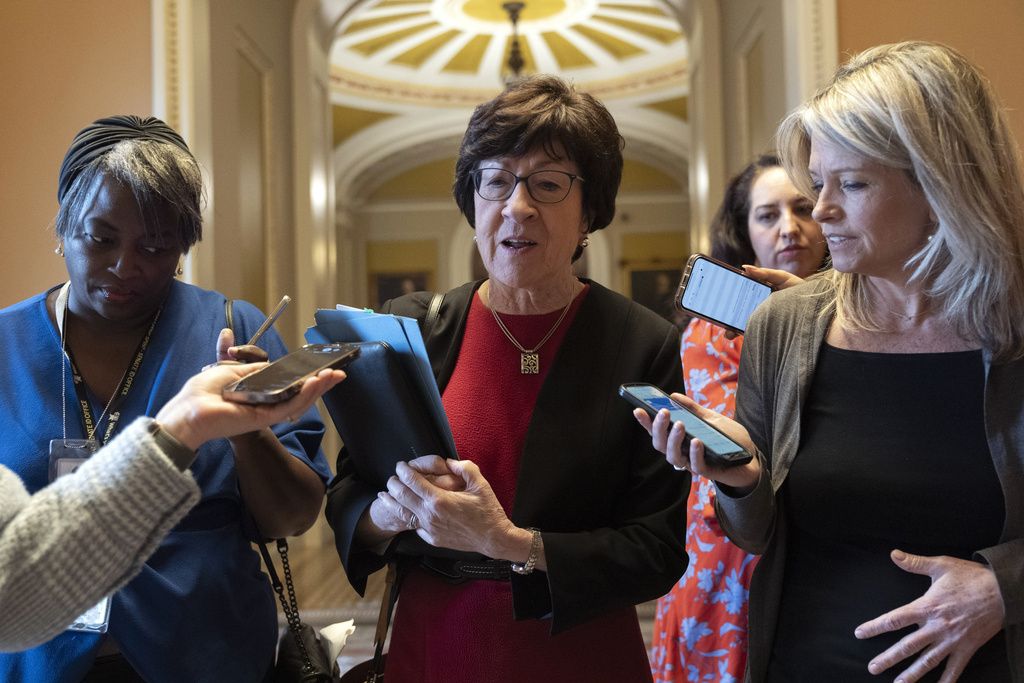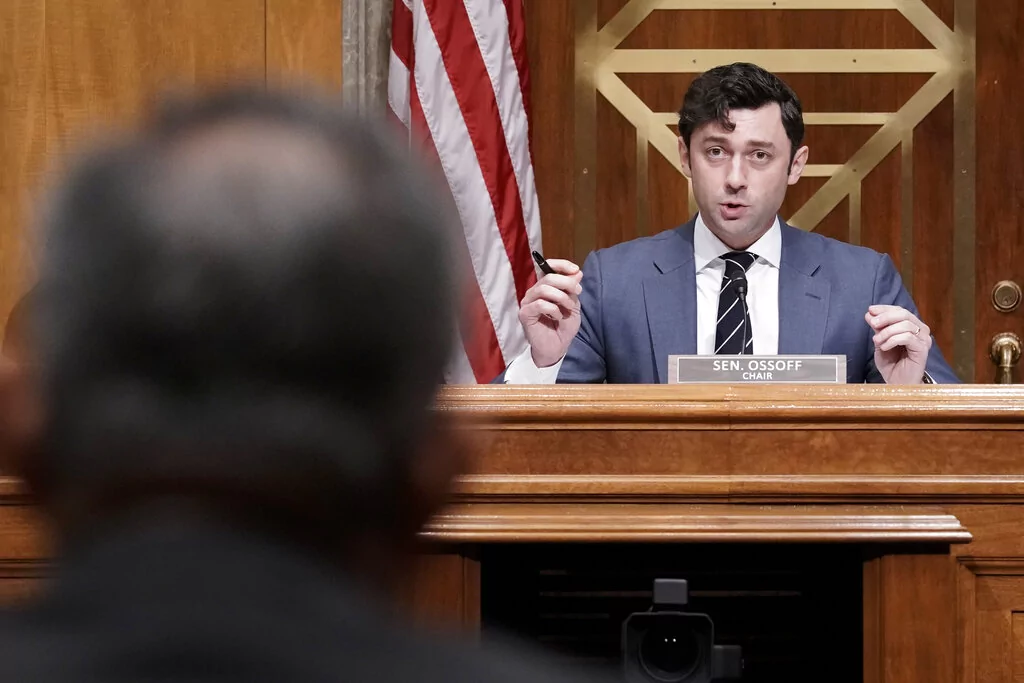
The 2026 midterm elections will have several competitive contests as Democrats try to retake control of the Senate.
While the majority party is historically at a disadvantage during midterm elections, Democrats face a taxing path to reclaiming a Senate majority, needing to flip four seats to reclaim power in the upper chamber.
North Carolina
Sen. Thom Tillis’s (R-NC) race for reelection is anticipated to be one of the costliest in the country, expected to break the national record of $300 million he set during his 2020 campaign.
Democrats are pushing former North Carolina Gov. Roy Cooper to challenge Tillis, with his seat being one of several they believe the party has a chance to flip in order to win back a Senate majority.
President Donald Trump won North Carolina by 3 percentage points in 2024, a good omen for Republicans.
While former Rep. Wiley Nickel (D-NC) and Attorney General Jeff Jackson are rumored as Democratic contenders, former Cooper likely poses the biggest threat to Tillis after spending two terms in the governor’s mansion.
Cooper has not announced a campaign yet, but Democratic Senatorial Campaign Committee Chairwoman Kirsten Gillibrand (D-NY) is pushing him to do so. Cooper would be a “formidable candidate,” she reportedly told Democratic donors Wednesday.
Cooper himself has signaled openness to a run.
“I am not done,” Cooper said during his farewell speech in December 2024.

Tillis told Spectrum News in December that he believed pulling off another win came down to enacting Trump’s agenda.
“If I can’t defend myself in a primary after being a two-term member, then I’m not very good at my job,” Tillis said. “The real question is how well are we going to govern? How well are going to come in and support President Trump and fulfill the promises that we’ve made? If we don’t do that, that’s going to be very, very difficult for anybody in the 2026 cycle to be successful, me or anybody else.”
But before Tillis makes it to the general election, he has troubles among his own ranks to worry about.
Some of the senator’s positions have long riled segments of his own party, with the North Carolina Republican Party censuring him in 2023 for working with Democrats to craft legislation on issues such as gun control and immigration.
One Republican, Andy Nilsson, a Winston-Salem teacher assistant and businessman, has already announced a primary challenge to Tillis.
Others rumored to be weighing a run against the incumbent senator include Lara Trump, the president’s daughter-in-law, and Michelle Morrow, a former candidate for North Carolina superintendent of public instruction. Former Lt. Gov. Mark Robinson pulled his name out of the running Friday.
Michigan
When Sen. Gary Peters (D-MI) announced this week he would not run for reelection, he shocked Democrats.
However, the contest to replace him started right away. Reps. Haley Stevens (D-MI) and Hillary Scholten (D-MI), former Transportation Secretary Pete Buttigieg, and Lt. Gov. Garlin Gilchrist (D-MI) have been rumored as contenders.
While Peters’s retirement opened the field for new Democrats, it also gave Republicans hope that they could build on the momentum started by Trump flipping the state in 2024. Former Michigan Rep. Mike Rogers has already sent clear signals that he plans to launch a senatorial campaign.

Other Republicans eyeing the seat include Reps. John James (R-MI) and Bill Huizenga.
Maine
Sen. Susan Collins (R-ME) confirmed to the Washington Examiner in November 2024 that she intended to run for a sixth term in office.
The lawmaker from Democratic-leaning Maine is known as a centrist in Congress who often defies the GOP. Although her record has brought together a coalition of crossover voters to win multiple elections, her seat this cycle is widely viewed as one of most vulnerable to Democratic challenges.
Gov. Janet Mills (D-ME) has emerged as Collins’s most likely Democratic competitor, although the governor has not yet announced her campaign.
James Melcher, a professor of political science at the University of Maine at Farmington, floated Mills as well as Reps. Chellie Pingree (D-ME) and Jared Golden (D-ME) as possible Democratic senatorial contenders in comments to Newsweek. Former Democratic Maine Senate President Troy Jackson could also be a candidate, he said.
During an interview with the Portland Press Herald in late November, Mills declined to rule out running for the Senate.

Mark Brewer, political science chairman at the University of Maine, told the outlet that Mills’s response could deter other Democratic candidates looking to throw their hats in the race.
“I think it makes perfectly good sense for Mills for a variety of reasons to keep that space open,” Brewer said. “Her not saying ‘no’ — that probably causes any other Democrat who was thinking about it to take a step back.”
Georgia
In the Peach State, the incumbent Democratic senator is already hard at work fundraising to defend his seat from challengers as he looks to win a second term.
But while Sen. Jon Ossoff (D-GA) holds the powerful trappings of incumbency, he is also a vulnerable Democrat running in a state that swung red in 2024.
Republicans see an opportunity through the state’s popular governor to oust Ossoff.
Sen. Tim Scott (R-SC), the chairman of the National Republican Senatorial Committee, is trying to recruit Gov. Brian Kemp (R-GA) to challenge the Democratic senator. And Georgia’s chief executive has been receptive to the idea, Scott said.
“We are looking for a way to make our No. 1 recruit a senator,” Scott told Semafor of the governor. “He would be the best candidate in Georgia we’ve had for a very long time.”
A recent poll conducted by WPA Intelligence for the Club for Growth gave Kemp a 6-point lead over Ossoff in a hypothetical matchup, although 14% of voters remain undecided.
Also rumored to be GOP challengers to Ossoff are Reps. Buddy Carter (R-GA), Mike Collins (R-GA), and Rich McCormick (R-GA). Trump also floated having Rep. Marjorie Taylor Greene (R-GA) make a Senate run during a 2023 campaign rally, while Insurance Commissioner John King and Georgia Secretary of State Brad Raffensperger could also be on the table.
But should Kemp declare his intentions to run for the Senate, most Republicans would likely drop their bids.

“Let’s see what the governor does,” Carter told Punchbowl in November. “If the governor runs, he will clear the field in a Republican primary. If he doesn’t run, we’ll see. God’s got a plan.”
Ossoff is gearing up for a long fight, regardless of who the rumored GOP gubernatorial candidates are.
CLICK HERE TO READ MORE FROM THE WASHINGTON EXAMINER
“I am up for re-election this cycle in what is sure to be the most competitive and expensive Senate race of 2026,” he said in a recent Facebook post pleading for supporters to donate to his campaign.
As both parties gear up for daunting battles, the top five Senate races are estimated to rack up costs of $2 billion.







